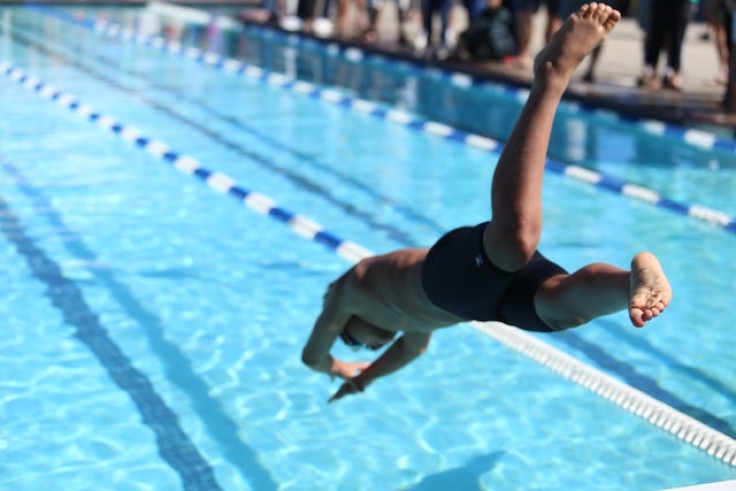
In a significant stride towards athlete welfare and mental health, Swim England, the national governing body for swimming in England, has made an impactful decision to ban the weighing of children at its clubs. According to CNN, this move comes as a response to athlete criticism regarding what has been termed "unacceptable behavior" surrounding the process of weighing young swimmers. Swim England has recently released new guidance stating that athletes under the age of 18 should not be subjected to weighing unless they are part of a nationally supported talent pathway.
The newly introduced policy applies to all aquatic disciplines and aims to address the potential psychological distress that may arise from weighing young athletes, including disordered eating, anxiety, and depression. Swim England's latest stance builds upon the guidance issued in 2021, which already recommended that children should not be subjected to weigh-ins.
Swim England Aims To Address Psychological Distress
Athletes, coaches, and proponents for athlete wellbeing have all praised the decision to enact the ban. British Olympic bronze medalist Cassie Patten, who serves as an athlete representative on Swim England's new Oversight Committee, expressed her wholehearted support for the policy change. Patten stressed the need to prioritize the mental health and overall wellbeing of athletes, emphasizing that the new policy would contribute to reducing the risk of athletes developing eating disorders and experiencing other mental health issues.
According to BBC, Patten courageously shared her personal experience of suffering from "disordered eating" after becoming overly fixated on losing weight under her coach's instructions. She revealed the detrimental impact it had on her mental and emotional wellbeing, causing her to develop a negative relationship with swimming for several years. Patten's testimony sheds light on the broader impact of weight-related pressures within the sport, underscoring the significance of addressing this issue.
Swim England's new policy further highlights that weighing eligible athletes, such as those over 18 or on the talent pathway, should only occur when there is clearly documented reasoning specific to the individual athlete and with the athlete's long-term development in mind. This ensures that any weight-related assessments are carried out with the utmost care and consideration for the athletes' overall wellbeing.
Read also: Bring up Your Child to a Healthy Weight: Tips on Starting Healthy Habits as Early as Possible
Spotlight on Mental Health: Swim England's Ban Signals a Shift Towards Athlete Wellbeing in Sports
The implementation of this ban on weighing children by Swim England reflects a growing recognition within the sports community of the urgent need to safeguard athletes' mental health and wellbeing. It acknowledges that while performance is undoubtedly a crucial aspect of an athlete's development, it should never come at the expense of their mental and emotional welfare.
By taking this proactive step towards creating a healthier and more supportive environment for young athletes, Swim England is setting an admirable example for other swimming organizations and sports governing bodies worldwide. It is anticipated that these organizations will take note and consider implementing similar measures to ensure the holistic development and protection of their young athletes.
The decision by Swim England to ban the weighing of children demonstrates their commitment to the wellbeing of their athletes and their dedication to promoting a positive and inclusive sporting environment. By prioritizing athlete welfare and mental health, Swim England is not only making a positive impact on the lives of young swimmers but also contributing to the ongoing conversation surrounding athlete wellbeing in the broader sports community.
As the effects of this ban on weighing children become evident, it is hoped that other sports organizations and governing bodies will follow suit, recognizing the importance of athlete mental health and embracing policies that foster the overall wellbeing of athletes at all levels. The actions taken by Swim England serve as a powerful reminder that the welfare of young athletes should always be at the forefront of decision-making within the world of sports.
Related Article : New York City Bans Height and Weight Discrimination in Landmark Law